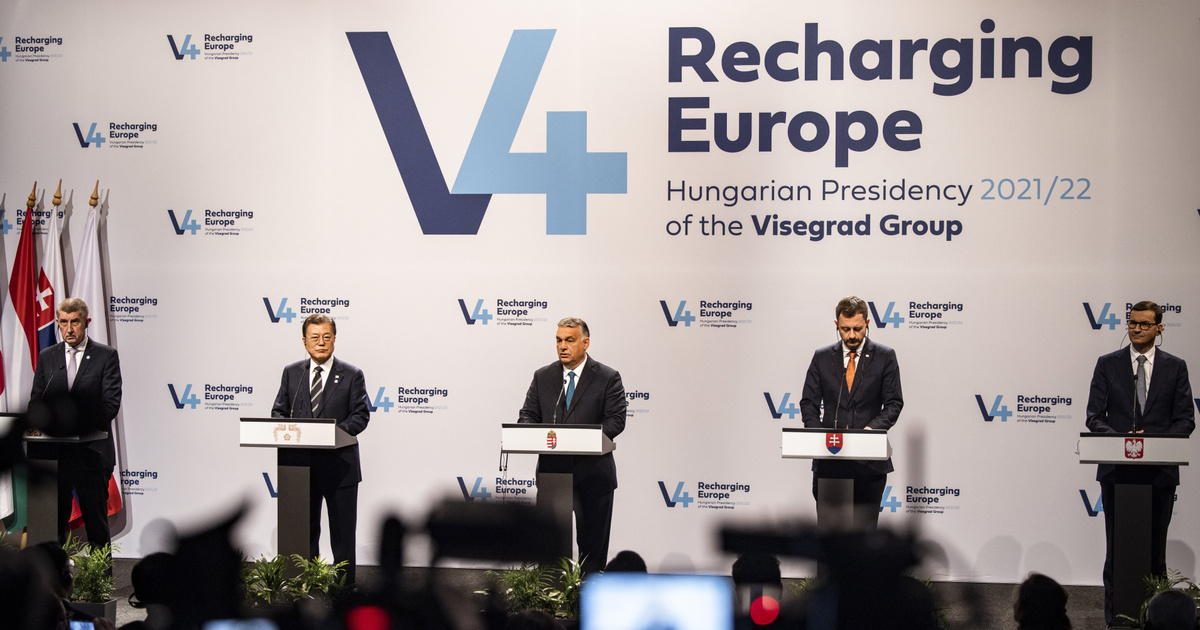Since 2015, the Czech Association for International Affairs (AMO) and Konrad-Adenauer-Stiftung have been conducting a biennial survey on trends in the foreign policy of Visegrad countries, to examine whether they are tangible in the four Visegrad countries (Czech Republic, Poland, Hungary and Slovakia) a kind of common identity in foreign affairs. The least researchers want to know is whether they express similar foreign interests in the four countries.
The survey this year Its approximately 500 participants included representatives of business and political life, members of the media and NGOs, and political analysts. It is true that this does not include societies as a whole, but it reflects the opinion of a segment that has a prominent influence in determining the foreign policy directions of individual states. The first outstanding result of the research was not surprising: in the four countries, participants attach special importance to the relationship between their country and Germany, Praha Radio News Portal Pavlina Yanbova, Head of Research at AMO.
mixed feelings
While it is not surprising that an average of 91% of those surveyed consider Germany to be their country’s most important partner in bilateral relations, it is actually surprising that only 39% of them mention the great western neighbor as a close ally. From this it can be concluded that in V4 Germany is seen primarily as an economic partner, and much less so than the Poles, let alone as a political partner.
Respondents were asked to rate their country and Germany on a five-point scale with the best score of 1. In the case of Poles, the lowest value came at 3.3, while Czechs and Slovaks rated the relationship at 1.6 and 1.5, respectively. The average was 2.2, which is slightly worse than the 2019 survey, but better than the 2017 survey.
Although 82 percent of those surveyed consider cooperation between their country and Germany important, Yanipova said it may change soon. Rule of law and climate protection issues are important to the new Berlin government and are at the back of the current Polish and Hungarian leadership’s list of priorities.
France and Austria
There are really big differences in the perception of France within the V4, so an average of 37 percent of respondents consider the country an important partner doesn’t say much. This is 61 percent for Poles, only 41 percent for Slovaks, 27 percent for Czechs, and 16 percent for Hungarians. Respondents in the four countries unanimously agree that France is not an important partner for their country (on average, only 4% think otherwise).
For some reason, Austria fell in favor of the Hungarians despite its short but memorable common imperial past. Only eight percent of those surveyed in Hungary believe “brothers in law” are close allies of their country, compared to 34 percent in the 2019 survey.
Hungarian exceptions
Janebová summarizes the survey results by saying that other groups, apart from government speakers, see V4 primarily as a business collaboration. As far as foreign policy is concerned, This group of countries They do not see it as the only platform their country can rely on. The exception is the Hungarians, who are among the four A the most enthusiastic For Visegrád’s cooperation.
Another “Hungarian issue” is the enlargement of the European Union. Although respondents from all four countries support the recruitment of candidates from the Western Balkans closest to joining, this issue is particularly important for Hungarians. Understandably, the Poles are more influenced by the East Quarter.
Finally, the third difference between Hungarians and respondents from the other three countries is the perception of Western sanctions against Russia, with which Hungarians had the most votes. It is almost surprising that, despite this, the majority of respondents, more than half, are in favor of restrictions.
(Cover Photo: Press conference at the V4-Korea South Korea Summit in Budapest at Castle Garden Bazaar on November 4, 2021. Photo: Zoltán Fischer/Prime Minister’s Press Office/MTI)












































